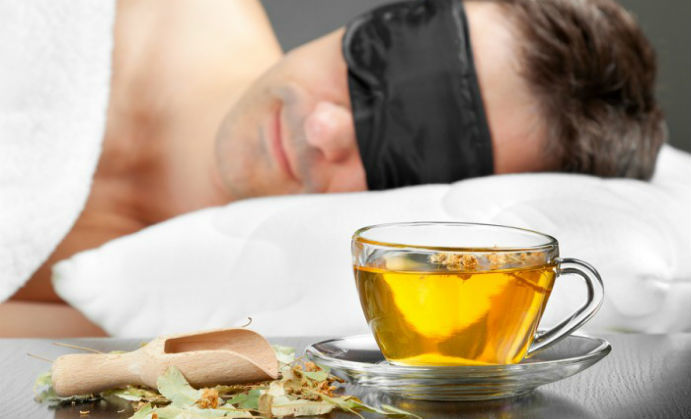Roughly sixty million Americans suffer from insomnia, and a significant percentage of these are consistently gaining weight. Is there a connection between these two problems? That same question could be asked in this way: Would changing my eating habits help me sleep better? Let’s find out!
What Research Tells Us
 Careful research has shown that habitual lack of sleep does influence our weight in two ways. First of all, not sleeping enough causes us to feel more stress. Stress triggers our body to release cortisol, a hormone which increases our appetite and cravings for comfort foods. At the same time that cortisol is encouraging us to eat more, a deficit of sleep decreases the amount of energy that we need while sleeping. The calories that we burn while resting are called our “resting metabolism”. Studies have shown that when our resting metabolism decreases, our bodies store more fat, especially around the abdomen.
Careful research has shown that habitual lack of sleep does influence our weight in two ways. First of all, not sleeping enough causes us to feel more stress. Stress triggers our body to release cortisol, a hormone which increases our appetite and cravings for comfort foods. At the same time that cortisol is encouraging us to eat more, a deficit of sleep decreases the amount of energy that we need while sleeping. The calories that we burn while resting are called our “resting metabolism”. Studies have shown that when our resting metabolism decreases, our bodies store more fat, especially around the abdomen.
We can’t blame our weight gain only on these scientific facts, though, because there are many different factors that influence the way our bodies store fat. As we consider some of these factors, I think you will find some changes that you can make to improve the amount and quality of your sleep.
Consider Caffeine
Many of us grab a cup of coffee first thing in the morning and then several more times throughout the day. Each cup of coffee has approximately eighty milligrams of caffeine in it. This caffeine travels to our brains, where it blocks chemicals related to sleep, and as a result we feel ready to be mentally and physically active. In moderation, this stimulation is harmless. However, when we drink more than six cups of coffee in a day, the caffeine stimulates our nervous system excessively and robs us of our sleep.
 Coffee is not the sole source of caffeine in our diets. Black tea and some soft drinks contain about forty-five milligrams of caffeine per cup, while fifty grams of chocolate gives us roughly half that amount. To improve your sleep, take a moment to calculate how much caffeine is in your diet. Then consider eliminating it completely. If you are a chocoholic or coffee enthusiast who can’t live without a fix, decrease your consumption of caffeine to less than two hundred milligrams each day and stop drinking caffeinated beverages eight hours before you hope to fall asleep.
Coffee is not the sole source of caffeine in our diets. Black tea and some soft drinks contain about forty-five milligrams of caffeine per cup, while fifty grams of chocolate gives us roughly half that amount. To improve your sleep, take a moment to calculate how much caffeine is in your diet. Then consider eliminating it completely. If you are a chocoholic or coffee enthusiast who can’t live without a fix, decrease your consumption of caffeine to less than two hundred milligrams each day and stop drinking caffeinated beverages eight hours before you hope to fall asleep.
Alcohol and Sleep Apnea
Some drink alcoholic beverages to improve their sleep, and studies have shown that drinking alcohol helps us to fall asleep quicker and sleep deeper for a short time. These same studies, though, point out that alcohol decreases our REM sleep, which is the deepest sleep of the night. Losing our REM sleep leaves us feeling tired and dull. Knowing that alcohol affects sleep, you might want to avoid alcohol for a week or two and see if you enjoy better quality of sleep. If you do opt to continue drinking alcohol, make it a point to only drink a small amount every day.
 Alcohol will especially disrupt the sleep of those who have obstructive sleep apnea. This type of sleep apnea is caused by the muscles in the throat relaxing to the point of obstructing the airways. If the airways are sufficiently obstructed, breathing pauses and our brain jolts us awake so that the throat muscles tighten and our airway is open again. Alcohol has a relaxing effect on muscles. This means more frequent and even more severe breathing problems for those with sleep apnea.
Alcohol will especially disrupt the sleep of those who have obstructive sleep apnea. This type of sleep apnea is caused by the muscles in the throat relaxing to the point of obstructing the airways. If the airways are sufficiently obstructed, breathing pauses and our brain jolts us awake so that the throat muscles tighten and our airway is open again. Alcohol has a relaxing effect on muscles. This means more frequent and even more severe breathing problems for those with sleep apnea.
Dinner Menu and Sleep
Dinner is a meal to be looked forward to. After working all day and hurrying through lunch, who doesn’t enjoy sitting down to a generous, satisfying meal in the evening? We don’t realize, though, that the foods we eat and the time we eat greatly influence our sleep.
It is a good habit to eat dinner three hours before you to go to bed. Sitting up and being active after a meal actually helps our food digest properly. In comparison, lying down soon after eating encourages the food and digestive juices to pool in our stomach or even seep back up the esophagus.
 Keeping dinner’s menu light aids sleep. Fats and large amounts of meat are difficult for the body to process, and they invariably slow down digestion. A slower rate of digestion increases the risk of heartburn and indigestion during the night. It is better to leave the fats and proteins for earlier in the day, and focus on vegetables, whole grains and carbohydrates for dinner. Eating a few extra good quality carbohydrates during the evening meal actually helps us sleep better. The carbohydrates encourage our bodies to produce insulin, which regulates our circadian rhythm.
Keeping dinner’s menu light aids sleep. Fats and large amounts of meat are difficult for the body to process, and they invariably slow down digestion. A slower rate of digestion increases the risk of heartburn and indigestion during the night. It is better to leave the fats and proteins for earlier in the day, and focus on vegetables, whole grains and carbohydrates for dinner. Eating a few extra good quality carbohydrates during the evening meal actually helps us sleep better. The carbohydrates encourage our bodies to produce insulin, which regulates our circadian rhythm.
Fluids and Sleep
One final consideration is that it is important to stop drinking water and other liquids a couple of hours before bedtime. This allows our body to rest and can help avoid multiple bathroom trips during the night.
In this article, we have looked at a variety of different factors which link diet with weight gain and sleep. I hope that you have found some helpful changes that you can make to improve your overall health and sleep. If you continue experiencing sleep problems or abnormal weight gain despite a healthy lifestyle, it would be wise to see a healthcare professional.
Do you want to find an effective Insomnia treatment? Check out our top rated Insomnia products











